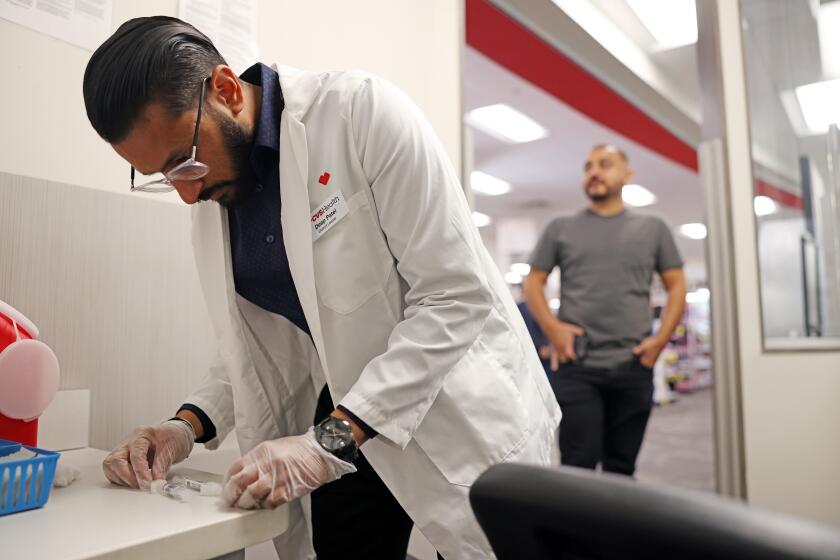My Turn: Lung cancer a low-profile disease
Hands up! How many readers know someone with lung cancer? How many think breast cancer kills more women than lung cancer?
How many readers think lung cancer means certain death? And how many people know that November, following right on the heels of National Breast Cancer Awareness Month, is another disease awareness month — for lung cancer?
Those of us with lung cancer are always disappointed at the dearth of information offered to the public about this disease compared with breast cancer, despite the fact that lung cancer is far more lethal, and a bigger killer to women than all the other cancers combined.
We lung cancer survivors — and yes, there are a growing number of us — get irritated and disappointed when we see the oceans of pink on everything from football players to garden gloves. Some of us are plain irritated that lung cancer groups apparently can’t get it together and organize the way that the breast cancer lobby has.
The big loser in the cancer-funding race is lung cancer. It is the biggest cancer killer in the country, yet compared with other major cancers it receives the least National Cancer Institute funding on a per-death basis, as reported in 2008 in the New York Times:
Lung cancer (162,460 deaths): $1,630
Colon cancer (55,170 deaths): $4,566
Breast cancer (41,430 deaths): $13,452
Pancreas (32,300 deaths): $2,297
Prostate (27,350 deaths): $11,298
Several funding criteria are at play here. Funding research that has a bigger payback is a better choice, some believe, than pouring money into disease research that seems to have little return for the buck. Additionally, the prevailing view is that lung cancer is, for the most part, a terminal disease — and why throw good money away for a poor result?
Not to mention that breast cancer is “sexier” and more well-known by the general public.
The reality is that lung cancer research is progressing. We now know that lung cancers, like the people who get them, are all genetically different, and scientists are developing effective, targeted drugs that address the genome mutations responsible for specific types of lung cancers. This is allowing many more lung cancer survivors to pass the five-year survival mark.
I am a two-time lung cancer survivor. My first was in 2001 and my second was in 2009, two completely different lung cancers, one on each side. I am the only “celebrity” to be public about my lung cancer.
So far, I am a cancer survivor, but cancer will be with me for the rest of my life, be it as a nodule, tumor or cell someplace, or in my fears and anxieties. Therefore I’ve decided that I am “living with cancer.”
This disease continues to be hidden and only whispered about. It has a stigma because of the relationship to smoking — “you did it to yourself” — and therefore the belief that somehow it is something to be ashamed of and kept hidden.
This in spite of the fact that most new lung cancers are in women who have never smoked or quit years ago.
Until lung cancer can be addressed as fairly as the other big cancer killers, until the public and the victims stop blaming those with the disease, until lung cancer support groups can cease being unnecessarily protective of their individual efforts and grow beyond 5K walks; and until others in the public eye stop hiding and encouraging the stigma, we will continue to confine lung cancer to the back rows of attention and research.
Joosten is an Emmy award-winning actress best known for her roles as the gossipy neighbor on ABC’s “Desperate Housewives” and presidential secretary Mrs. Landingham on the NBC drama “The West Wing.” A lung cancer survivor, she is involved in numerous lung cancer charity foundations. Before she began acting at age 42, she worked as a psychiatric nurse at Michael Reese Hospital in Chicago.
My Turn is a forum for readers to recount an experience related to health or fitness. Submissions should be 500 words or fewer, are subject to editing and condensation and become the property of The Times. Email health@latimes.com. Read more at latimes.com/myturn.



